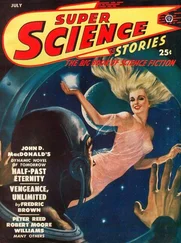I wanted to tell them. I could hear them babbling about car keys and criminal investigation and newspaper reporters. It made me impatient. I wanted to stand up and roar for silence and then explain what I had discovered. If I could make them understand, then they could stop this babbling foolishness. They could not learn the methods and the plans, of course. But if they could follow my words, they could see how it had been given to me to open this new frontier. I put the books aside, those books that were merely exhaustive records of failure, of the lack of comprehension. I sat there filled with contempt for them. No, you could not tell them. It was too intricate for them. Their standards were too mortal.
I felt the excitement coming, and I did not know why. I looked carefully around the room, looking for the source, knowing that this was, as it would always be, the first warning of a new design, a new creative act. The form was still new to me, so that it took me a long time to find my way through to the inevitable.
As with Wilma, it was ridiculously easy. They were mortal. They could not be convinced with words. But they could be convinced with deeds. With demonstration. Then they could see, all at once, the beauty and the significance of it. And then there would be no awkwardness and no delay in interpretation. Then we could discuss it calmly and I could explain to them why the form had to be exact each time, balanced to meet the symmetry of the moment, precise in its beauty, brilliant and deathless.
Mavis Dockerty sat six feet from me, her back to me. I felt differently toward her than toward Wilma. I felt grateful to Wilma. But I owed this woman nothing. It was I who would honor her, who would make her this gift that would provide an eternal moment of meaningfulness to her shallow life, so that, in effect, she would live forever.
I stood tall behind her, my feet planted strongly, and I took the godhead symbol from my pocket and held it tightly. I learned another thing in that moment. That it is important to achieve a special expression for the need of the moment. The face must be utterly slack and expressionless. All expression is in the muscular rhythm, so the face must not detract. I waited until they began to notice me, to look at me rather oddly. Then, as with Wilma, I slipped my hand under her left arm, bringing it across to cup her right breast. She tensed in shock and in my mind I told her strongly to welcome this and not to resist it. I drove the symbol into her skull with one sharp blow, sensing that I must leave it there for a time. I stepped back and it was a gay wooden decoration, bedded perfectly. She bent forward from the waist in slow worship, and there was but one flaw to mar it. Her leg kept making a rather ridiculous kicking motion.
I looked up, waiting for their awe and their appreciation, hoping the flaw had not disturbed them, that the flaw had been overbalanced by the perfection of placement, and I saw her husband and the largest uniformed man running at me, while Steve Winsan bounded from the room.
The uniformed man yanked his gun from his holster and struck me across the side of the face. I fell heavily. I could not move, but I was aware of what was going on. It puzzled me. It seemed such a ridiculous thing to do. Ridiculous to hear the scream of a woman. And then, suddenly, I realized my own error. I had expected too much of them. The act had been truly beyond their comprehension. They would make no effort to understand. They had completely missed the significance of it. And I smiled inside and knew how I would punish them. Later, when they realized, they would beg and plead for an explanation. They had acted hastily. They had hurt me. So it was my right and my privilege to deny them access to me.
They pulled my wrists together and put handcuffs on me. They had moved my body. And that gave me a problem that bothered me. True, I could refuse to speak to them, but even in the movements of my body there would be meaning for those who watched carefully. It was beyond my powers to do anything at all devoid of meaning.
After a time I resolved that difficulty. I would give them no clue, by word or movement. When they saw that I was conscious, they sat me in a chair. I gave them no help. Once they sat me there, I stayed there, far back inside myself, looking at nothing, and I was laughing at them. I would give them nothing. No matter how they pleaded, I would give them nothing. They kept at me, shouting at me, pulling me this way and that way. I assumed each position into which they pulled me, but I made no motion of my own. And soon I found a new talent that pleased me. I could make my thoughts loud, so that their voices came to me from far away, fuzzy and insignificant and without meaning. Once you are able to do that — and only very few, I am certain, can accomplish it — it destroys the meaning of the passage of time. A year is a minute, or an hour is a lifetime.
I was aware that others had come. New ones. Older ones with grave faces. I sat there. I stared at nothing. I let my mouth sag open. And I felt the rope of saliva from the corner of my mouth to my chest. I could shut them out entirely. They would get nothing from me. There were great depths in me, a thousand hiding places. Where no one could follow me and drive me out into the light.
And in one of the dark places I began to redo that picture of long ago. Every leaf. Each leaf had five points. It would take a very long time, and once it was done, I could do it over again. With the ultimate of care.
From a long way away somebody came to me and he took my chained hands and lifted them up so that they were over my head. Then he let go of them. I held my hands there. I would not betray myself. I would hold them up there until they withered and died, until my shoulders locked in place, rather than betray myself by any conscious movement.
And then somebody took my hands quite gently and lowered them back to my lap. I knew then that I had defeated all of them. It was the final test.
Now they would leave me alone. I would never let them know how. Then I would be the only one who had ever found out, in all the history of the world.
Chapter Seventeen
(Joseph Maleski — Afterward)
Roy Carren dropped me off at Shattocks’ Pine Tree Restaurant. It’s just down the road from the barracks. By then it was eleven o’clock in the morning. Sunday morning. I watched him drive down the road. Slow. I felt like somebody had peeled the skin off my face and stuck it back on again, using too much glue. When I rubbed my jaw I felt the whiskers. I felt real strange. It made me remember a time when I was a little kid. I had to go to a Halloween party all dressed up funny in the daylight. I had to go alone with everybody laughing at me. All the grown-up people.
I went on into the restaurant. On Sunday they serve a big breakfast and serve it up until noon. Usually I sit at the counter. But as soon as I got in the door and saw them all looking at me, I knew that if I sat at the counter they were going to start asking all those questions. Usually I don’t mind all that. I guess maybe I sort of like knowing what has gone on. Like with a bad accident on the main route or something. I go in and they ask me about it and I tell them. But I could see they wanted to know all about the drowning and those people and all, and I just didn’t want to talk about it. So I turned and went on over to one of the booths and slid in and hiked the holster around so the gun wasn’t digging into me.
I guess I didn’t look so friendly. Benny, from the garage, came over to the booth sort of uneasy and stood about four feet away and said, “Guess it was kind of a mess out there, that guy going crazy and everything, eh?”
I gave him a look and nodded and picked up the menu and opened it, even though I knew I was going to have what I always have on Sunday when I go in there. Sunnyside up with ham and a double order of toast with the wild strawberry jam Mrs. Shattock makes. Out of the corner of my eye I saw him stand there and then go away.
Читать дальше
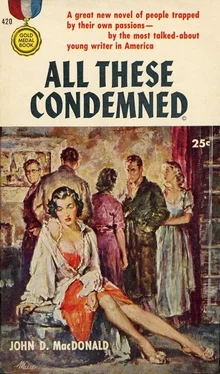
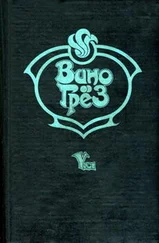
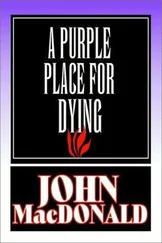
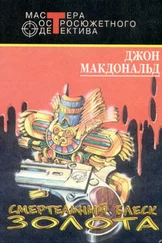
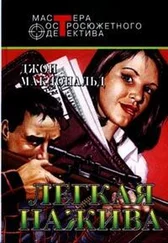

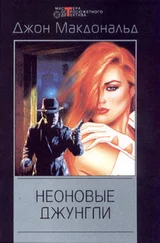
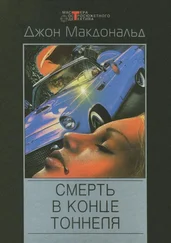
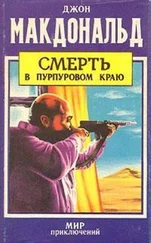
![Джон Макдональд - Wine of the Dreamers [= Planet of the Dreamers]](/books/430039/dzhon-makdonald-wine-of-the-dreamers-planet-of-thumb.webp)

